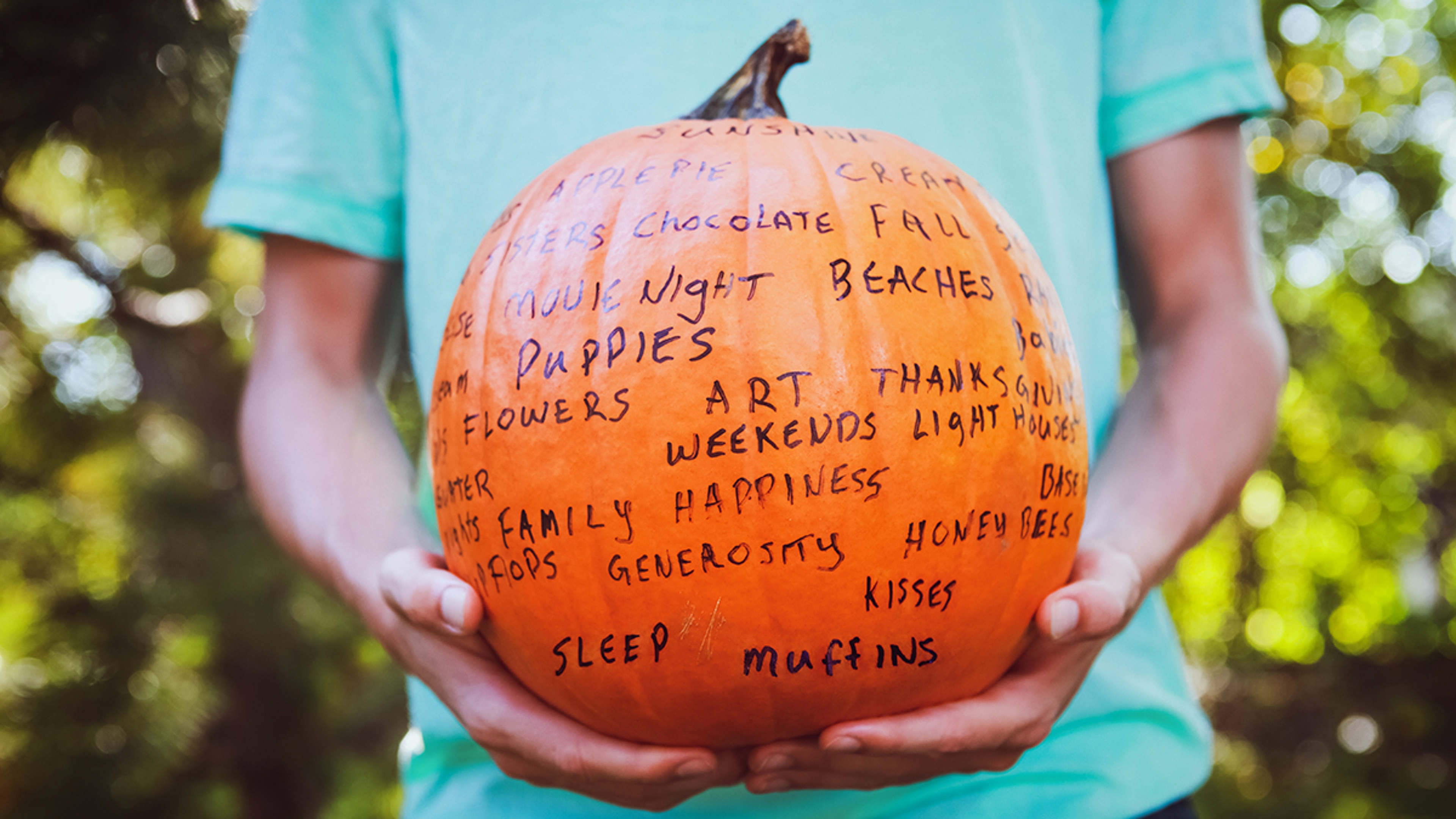The Many Benefits of Showing Gratitude
There's more to it than a simple "Thank you."
Sep 04, 2024
When renowned anthropologist Margaret Mead was asked to comment on her view of the telltale signs of civilization's birth, she looked not toward the development of sticks and rocks fashioned for use as tools and weapons but rather to an ancient femur bone that showed signs of having healed from a break. The person from whence the bone came, she noted, was once vulnerable to the weather, predators, and starvation because he or she could not hunt, forage, or get to the river to drink. The bone's eventual healing meant someone else took the time to nurture and protect that individual, even at great personal risk.
The follow up to that, the act of being grateful enough to reciprocate such protective behavior, or offer it in turn to benefit another — what's termed “reciprocal altruism" — establishes the kind of trust that leads to lasting bonds that ultimately grow into larger units, then tribes, and then civilizations and societies. “Helping someone else," Mead emphasized, “is where civilization starts."
What is gratitude?
Gratitude, it can therefore be said, is a state of mind — the act of recognizing the help you have been given or realizing that you have benefited from some positive outcome, and then expressing appreciation for it in thought, word, or deed.
All of that exists within the etymology of the word, which is rooted in the Latin “gratia," meaning “grace, graciousness, gratefulness, or thankfulness." This extends to the modern Spanish and Italian words for thanks, “gracias" and “grazie," respectively. But there's more to it. In the broadest scope of its origin, the Latin “gratia" was directly linked with the word “gratis," meaning “free or without recompense." Ideologically, this semantic tie established what we now commonly refer to as “paying it forward": To offer something “gratis" was to do so in the spirit of “gratitude" for one's own good fortune.

Of course, much of that sentiment, and what we reflexively associate with the term "gratitude," has historically been defined within a religious context — namely, counting our blessings and thanking and praising an unseen benevolent force for the good that befalls us. Pagans thanked their gods dramatically with blood sacrifices and burnt offerings. And mainstream religions that have thrived to modernity — Judaism, Christianity, Islam, Buddhism, and Hinduism — continue to cultivate gratitude as a moral virtue through the practice of giving thanks in daily prayer, in meditations, and on special holidays. The national collective expression of that in America is the annual observance of Thanksgiving — a legal holiday set aside to express gratitude. Although increasingly thought of as a secular holiday, Thanksgiving, which was first held in colonial Massachusetts in November 1621, started out as deeply religious in nature. Christian pilgrims and Native Americans celebrated that inaugural three-day feast to offer thanks and praise to their respective gods for the fall bounty that would sustain them through winter.
How to be grateful
But however large the religious aspect of gratitude has loomed, it represents only a fraction of a larger two-stage awareness process, according to Robert A. Emmons, Ph. D., professor of psychology at UC Davis, and the leading scientific expert on the study of gratitude. In his 2003 paper, Emmons established that the first part of gratitude resolves with the conscious acknowledgment of goodness in one's life — that we have been gratified in some way in the first place. The second is recognizing that the majority of this goodness originates outside the self — from an unseen force, yes, but also very often from ordinary people or circumstance in the world at large.
To that point, Kathryn Lawing, clinical psychologist and a sought-after guest speaker who is an expert in a broad array of mental health issues, notes that even deeply depressed people who feel they have nothing to be grateful for are mistaken. “I would reference Maslow's hierarchy of needs and point out that there are things to be grateful for even on a base level," Lawing says. “Do I have food and water? Do I have shelter? Am I safe? Higher levels, such as self-actualization, do not have to be met for one to begin being grateful."

That is especially good news in light of recent studies that indicate that even extremely limited lists of things for which we're grateful can help to focus our attention positively on what we have as well as generate an awareness of where we are in the moment. Sophia Godkin, a clinical psychologist who refers to herself as “The Happiness Doctor" and the author of the best-selling book The 5-Minute Gratitude Journal, explains it this way: “The natural state of our mind is toward negativity. We have a negativity bias, and, if not consciously diverted, our mind will tend to focus more on negative stimuli. Gratitude creates a little pause in time and space where you can reorient yourself. The practice of gratitude allows us to pivot our attention to something that gives us more joy. It's not that we changed anything in our circumstances or environment — we just changed our attention. We changed the point of focus."
Those last two points — that we can be grateful for even the most basic things in life and actually learn to feel grateful — form the critical sum that we have the ability to move the needle in a positive direction at any time. “Some people start off naturally happier than others," Godkin says. “There are temperaments that are just more optimistic — you know, the 'glass half full' type. But regardless of your baseline happiness, there's lots of room for movement. Ninety percent of your happiness is actually changeable!"
Why you should practice gratitude
That kind of gratitude-based change, which is actually a form of mindfulness, has profound psychological and physiological effects. Emmons' groundbreaking research, along with notable studies conducted by teams at Harvard, UCLA, and other institutions involved in the recently emerging evidence-based positive psychology movement, have shown conclusively that regularly practicing gratitude actually alters the neural structures of the brain, making us feel happier and content and physically healthier. While compelling evidence exists that this positive mind-body connection has the potential to increase longevity, the more immediate and concrete list of benefits include:
- Better sleep
- Strengthened immunity
- Increased libido
- Decreased stress
- Lower blood pressure
- Reduced anxiety
- Fewer aches and pains
- Reduced reliance on medications
The psycho-social benefits include:
- Greater commitment to exercise and healthful eating
- Higher levels of optimism and positive emotions
- Reduced feelings of envy, frustration, and regret
- More joy and pleasure
- Increased alertness
- Decreased focus on materialism and consumerism
- More helpful, generous, and compassionate
- More forgiving
- More outgoing
- Deeper connections with others
Equally important from the critical standpoint of clinical intervention are recent studies that have found a strong link between the practice of gratitude and increased feelings of resilience regarding depressiveness, suicidal ideation, post-traumatic stress disorder, and substance abuse disorders.
The positive mind-body outcomes associated with gratitude listed above can be traced to a nifty biochemical shift that can be rightly looked upon as a free and extremely effective medicinal boost. Pausing to experience gratitude and consciously moving away from negative states releases “happy neurotransmitters," Lawing says, referring to the bursts of serotonin, dopamine, and oxytocin that make us feel good. These can replace stress-, anxiety-, and panic-related chemicals, such as cortisol, creatinine, and C-reactive proteins, that are responsible for damaging inflammatory effects that can lead to heart disease, chronic pain, and premature aging.
This healing effect occurs, Godkin says, because “while practicing gratitude our heart rate slows down, our breathing slows down, and our blood pressure decreases. So we naturally feel a more relaxed way of being, and that's in the moment.
"People who practice gratitude consistently over time see lots of positive effects," she says. That's due to being in the mindset where negative neurochemicals are replaced with positive ones and the brain is subsequently rewired.
Expressing gratitude strengthens relationships
One final critical point about the expression of gratitude, which harkens back to the earlier point of human bonding, is that this practice has been noted as a key factor in successful relationship building between friends, in parent-child ties, and especially within romantic attachments. To that point, and because of all those happy neurochemicals bouncing around, Emmons often refers to gratitude as a “relationship-strengthening" emotion.

Lawing concurs, and in her practice counseling couples and families, discussions about expressions of gratitude can come into play. “We know that in significant relationships, whether they are romantic relationships or friendships or mentor-mentee situations, gratitude is a driving force," Lawing says. “Even the simple act of expressing appreciation for something like emptying the dishwasher can serve to reinforce communication and positive feelings toward one another."
“There are few things more important than appreciating the people who mean something to you and receiving appreciation in return, and I don't know if we enjoy anything more that we take into our hearts than feeling appreciated," Godkin says in perfect summation. “It reminds us that we matter. And reminding someone there's actually something so right about you is a big deal. It sounds simple and small, but expressing gratitude is actually such a big deal. And, you know, it changes peoples' days. It changes peoples' lives."
.svg?q=70&width=384&auto=webp)










